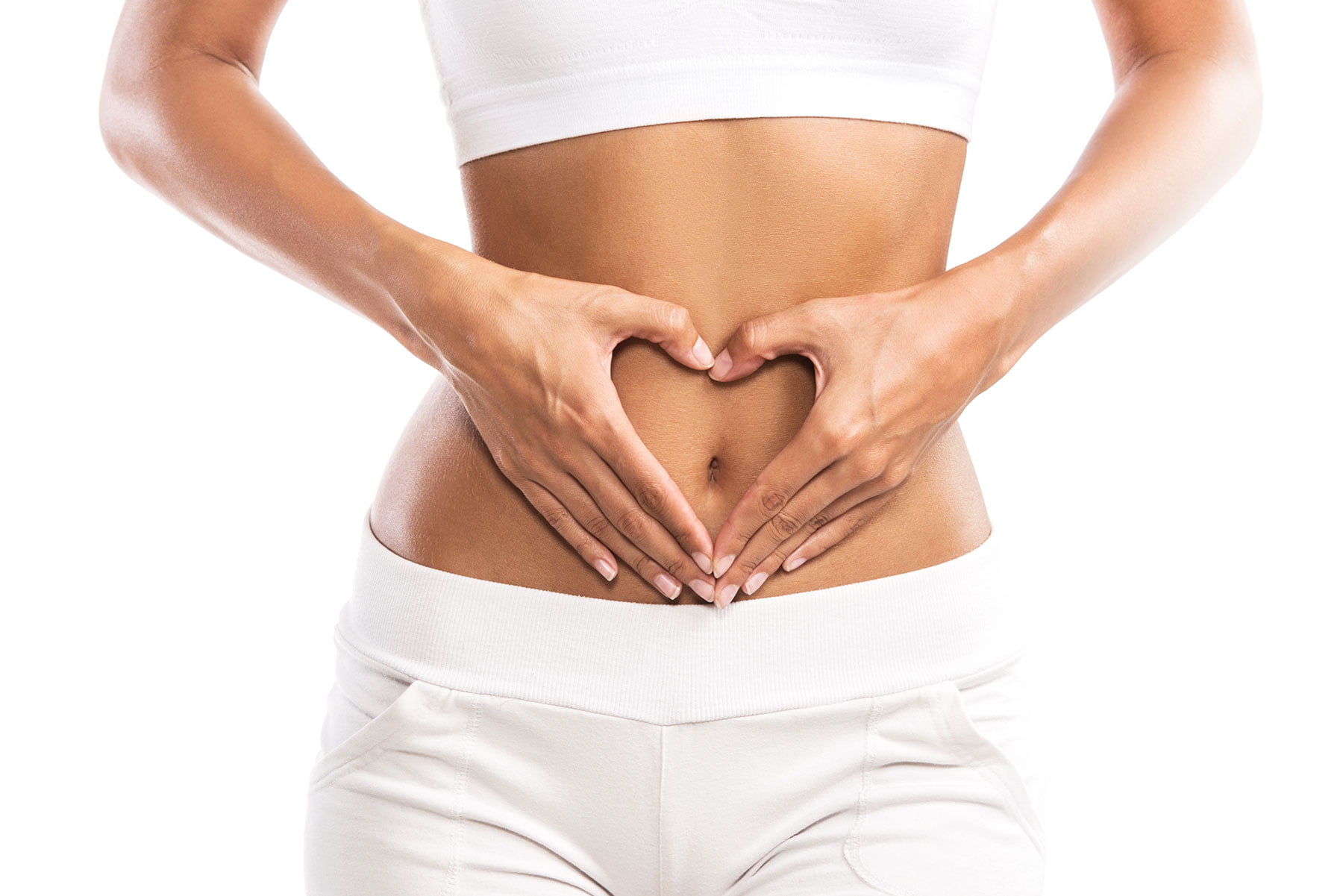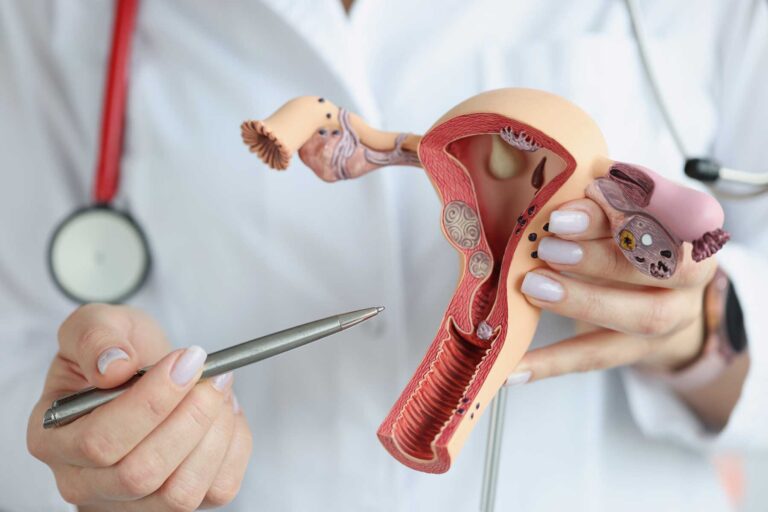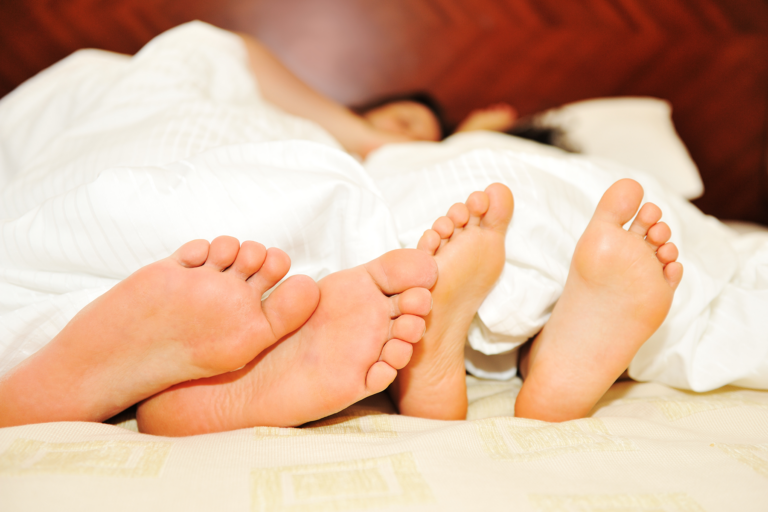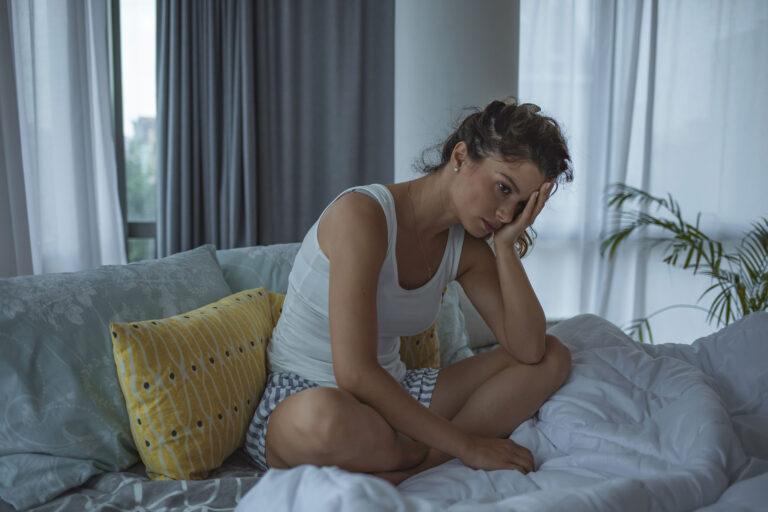If you are experiencing pain “down there,” this is not uncommon, but that doesn’t mean you have to live with it. We treat patients with vulvodynia all of the time so let’s take a quick look at vulvodynia, which is the technical term for chronic pain in the vulvar area.
See Also
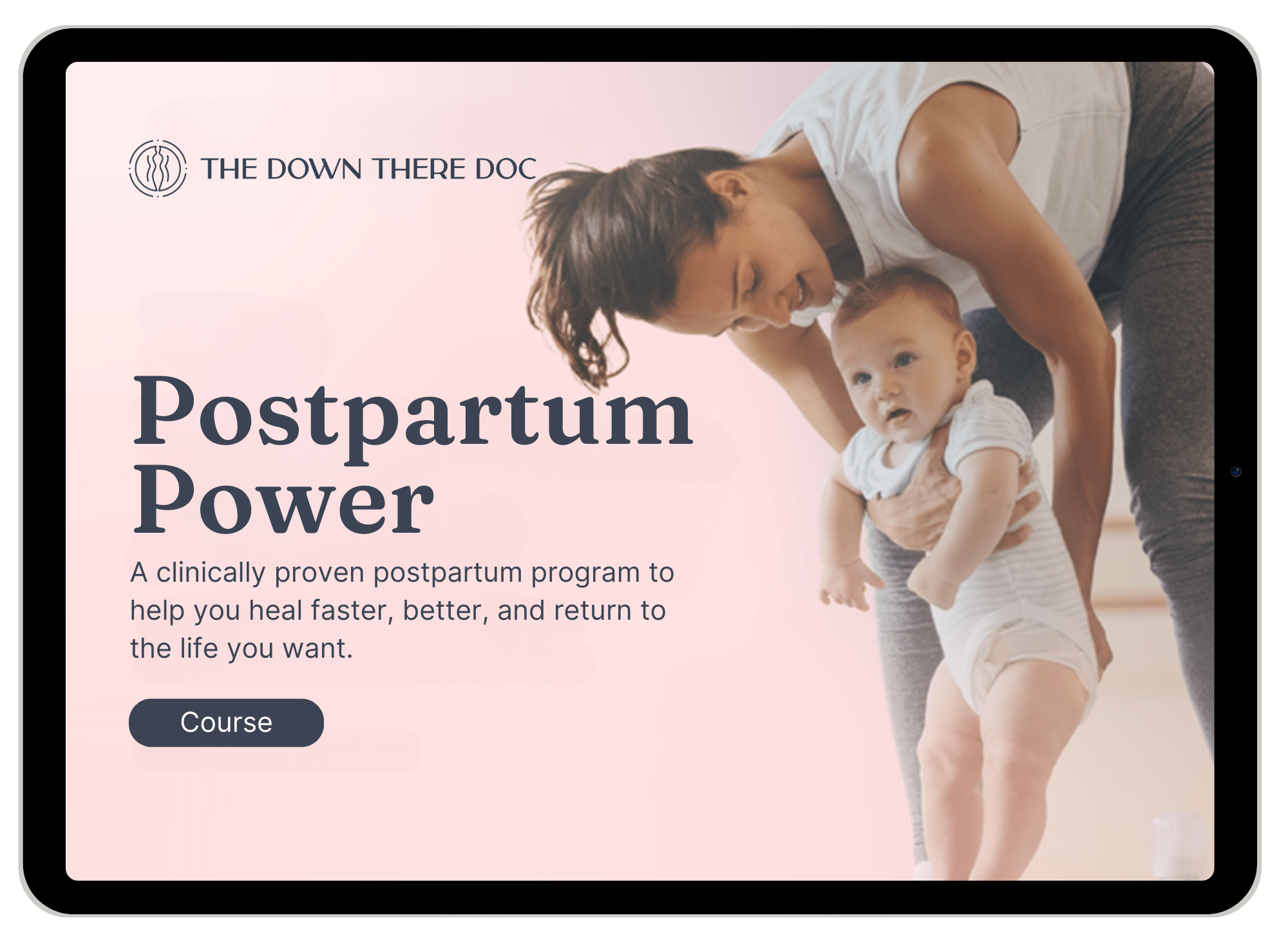
Postpartum Power
Some Quick Anatomy
Just what is the vulvar area anyway? The vulva has a big job. It protects a woman’s sexual organs as well as the urethral opening and it even helps women with sexual response. There are several parts to the vulva, including the labia majora, labia minora, the vestibule, the clitoris and even the openings to the vagina and urethra.
Our bodies have special muscles that help support the vulva as well as our bladder, uterus and bowel. These muscles are known as the pelvic floor muscles. Sometimes problems with these muscles can be a cause of vulvodynia as well as issues such as urinary leakage. But we will get to those pelvic floor muscles in a second . . .
What Is Vulvodynia?
Vulvodynia is classified as a type of chronic pain in the vulvar area that lasts for several months. Some women experience pain with intercourse as well as with tampon insertion or when anything is inserted into the vagina, such as a speculum. In some cases, the pain might occur after sitting for a long period or even riding a bicycle.
Often this type of vulvodynia is called localized vulvodynia because it generally occurs when force or pressure is applied to the vestibule or vaginal opening. It also tends to occur in just one area of the vulva rather than in many areas.
Some women have what is known as generalized vulvodynia, and this means that you might have pain at any given time and not just when pressure is applied. These women tend to have fairly constant pain or discomfort, although at times the pain might be absent. Also, with generalized vulvodynia, you might have pain in several vulvar areas. Sometimes this includes pain with sex or tampon insertion, etc. and sometimes it doesn’t.
This “pain” can be experienced in many ways. Some women describe it as sharp stabbing pains, while others will feel a burning-type of sensation. Some women will feel general soreness or aching or itching, it all depends. Basically, if you are in chronic pain or discomfort in your vulvar region, vulvodynia is a likely culprit.
What Causes Vulvodynia?
To be honest, we aren’t totally sure what causes vulvodynia. It’s quite possible that there are several reasons why this condition develops. For some women, a nerve injury might be the culprit, while for others, it could be due to hormonal changes, such as those that occur during pregnancy or menopause.
For some women, it might be due to frequent yeast infections. In some cases, irritants such as soaps or other substances can be a cause. While the causes may vary from woman to woman, the result is that you are uncomfortable and in pain, and the good news is that you don’t have to just endure, there are plenty of treatment options to consider.
Treating Vulvodynia
Your first step should be to talk with your doctor about the pain and discomfort and rule out any type of medical issue. If your doctor shrugs off your concerns or just states that it’s normal, it’s probably time to get another doctor. Vulvar pain is common, but it is not normal and it’s not something to simply dismiss.
You deserve to live a life without this level of discomfort. Vulvodynia can seriously impact your day-to-day life and your sexual life, and this isn’t ok. So if your doctor isn’t really listening, find a doctor that will address these concerns.
Often a doctor will begin by looking for a medical cause, such as a yeast infection or nerve damage. For some women, a doctor might prescribe some type of topical cream or estrogen cream. Sometimes, oral medications or injections might be solutions your doctor will recommend. In some cases, a few lifestyle changes might help, as well.
A Few Quick Tips
For some women, some self-care can reduce discomfort, especially if the vulvodynia is caused by irritation or frequent yeast infections. For instance, switch to wearing 100% cotton panties and wash your underwear in detergent formulated for sensitive skin and skip the fabric softener. Consider using cotton pads and tampons that are free from any harsh chemicals. Using dye-free, unscented toilet paper also is a great idea.
Gently wash the vulvar area with warm water and don’t use soaps or shampoos in this area. You really don’t need to use soap for this area, but if you balk at the idea of going soap-free, stick with soaps that are unscented, colorless and gentle. I also recommend that you steer clear of those specialty “feminine” washes, creams and sprays. These can do more harm than good.
Wearing loose-fitting pants and skipping the pantyhose also can help. Tight pants can put unnecessary pressure on the area. If the vulvodynia is caused by irritation or yeast infections, pantyhose can really help that yeast grow, so ditch the hose and let that air circulate.
When it comes to painful sex, using lubricant sometimes can help and rinsing the area with cool water after sex can reduce discomfort. If lubricants don’t help, please call your doctor or give us a call. There’s no reason to suffer or forgo a healthy, happy sex life if this problem can be addressed and fixed.
Pelvic Floor Therapy May Help
In some cases, those pesky pelvic floor muscles might be the culprit. As a pelvic floor physical therapist, I may be able to help with any vulvar, vaginal or clitoral pain you may be having. Whether you are having generalized chronic discomfort or pain during sex or with vaginal penetration, there are ways to lessen or eliminate this discomfort through pelvic floor therapy. Believe it or not, sometimes just treating these muscles can go a long way to solving many issues.
If you need treatment for vulvodynia, give us a call and we can schedule a consult. We can help treat a number of conditions, including any type of pelvic or vulvar pain, as well as urinary or fecal incontinence, bladder pain, painful sex, pelvic organ prolapse and much more.

